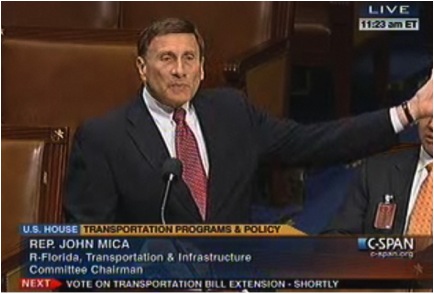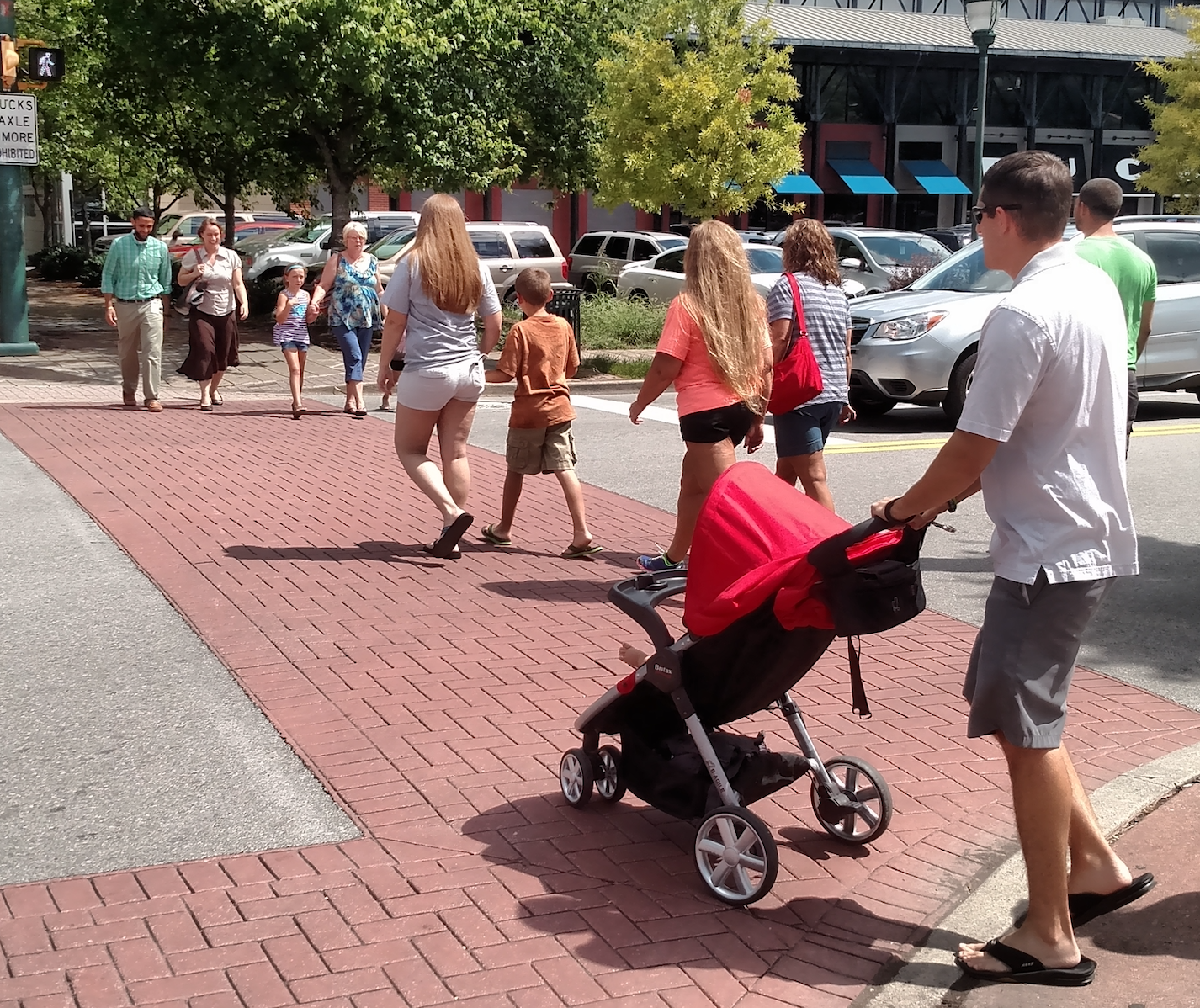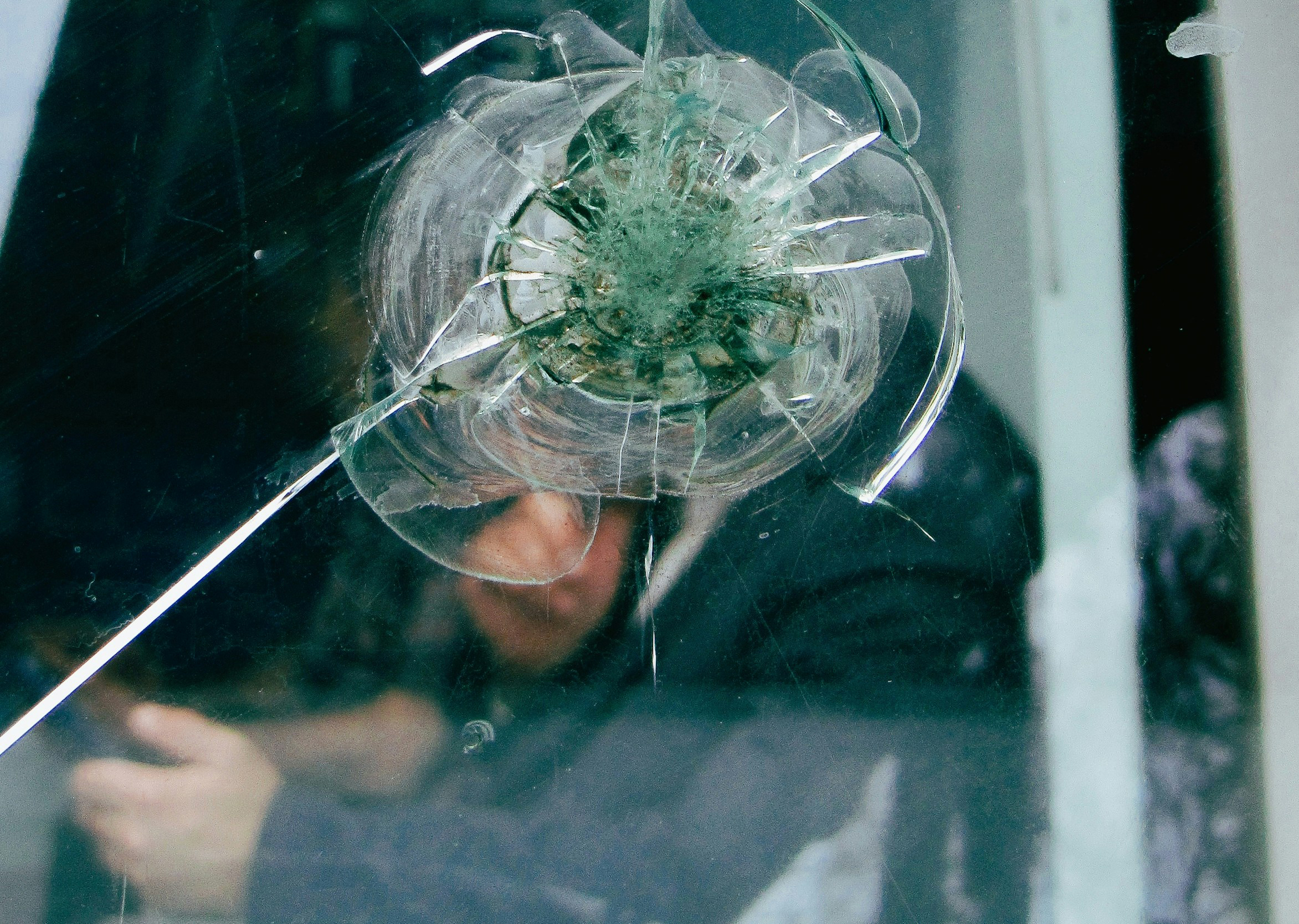House Transportation and Infrastructure Committee ranking member John Mica knew the value of good transit.
"I became a mass transit fan because it’s so much more cost effective than building a highway," he told PBS in 2009. "Also, it’s good for energy, it’s good for the environment – and that’s why I like it."
Flash forward to February 2012. Mica is now chair of the committee, and he and his colleagues in the House have delivered a transportation bill that is bad for the environment and very bad for transit. Instead of receiving a dedicated share of the federal gas tax, as has been the case for three decades, transit would be expected to survive with an infusion from the treasury -- with no guarantee of anything after that.
Mica defended the proposal vigorously. "The transit community, who has no source of revenue, is demanding that they stay and get a share of the trust fund, which, one, they don't contribute to, and two, the trust fund is not going anywhere," Mica told reporters. "If anything, it's going to go down in its revenue as vehicles switch out to alternative fuels."
Sure doesn't sound like the words of a "transit fan."
Mica used to be the premier pro-transit Republican in the House. Not anymore. That title now belongs to Ohio's Steve LaTourette or Illinois's Robert Dold, who have voiced the most resistance within their party to anti-transit measures in the House transportation bill. So how did ranking member Mica, who was one of his Democratic Chairman's closest allies and biggest supporters, turn into Chairman Mica, enemy of transit?
We approached Mica's office for this story and have yet to hear back. But it's easy to see how the shifting landscape of transportation politics would affect a pro-transit Republican in a leadership position, like Mica. The T & I chair is now stuck between a rock (the intransigent GOP base) and a hard place (the declining power of the federal gas tax).
Taking a charitable view, H.R. 7's attack on transit could be seen as an attempt to compromise on Mica's part. He knew that gas tax revenues would be insufficient to fund transportation programs at current levels for much more than two years. But he also knew that the conservative wing of his own party would block any new taxes or expanded tolling.
In the end, the product that came out of Mica's committee -- funding transit from general taxes -- spent too much to win over the Tea Party, and wreaked too much havoc with transit systems to win over moderates in his own party (not to mention every Democrat and plenty of influential lobbies).
That pro-transit positions are apparently now untenable for a Republican T&I chair is troubling, to say the least. Even as more Americans come to rely on transit, agencies are struggling to hold the line on fares and service even without the threat of funding disruptions from Washington. They are already hurting for cash, and transit riders are suffering from cutbacks and fare hikes.
Larry Hanley, president of the Amalgamated Transit Union, put it well when he told Politico this week that this is simply a tax increase by another name, handed down from a supposedly tax-averse Congress: "We have this one beleaguered group of taxpayers called transit riders who have been held exempt from the no tax increase promises in Washington."






